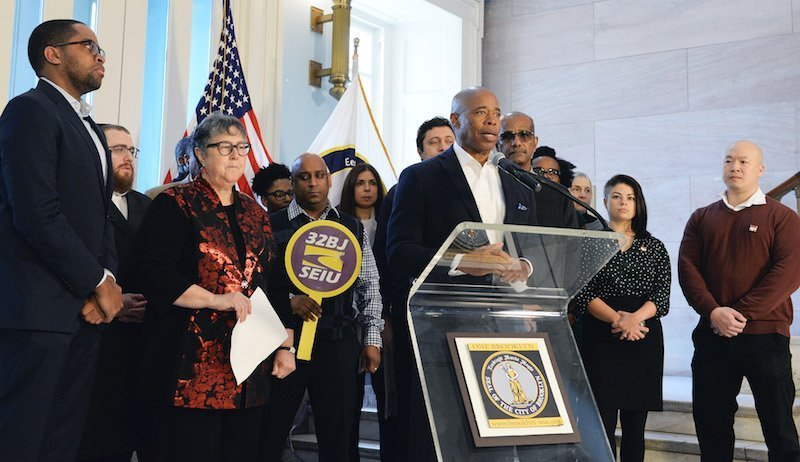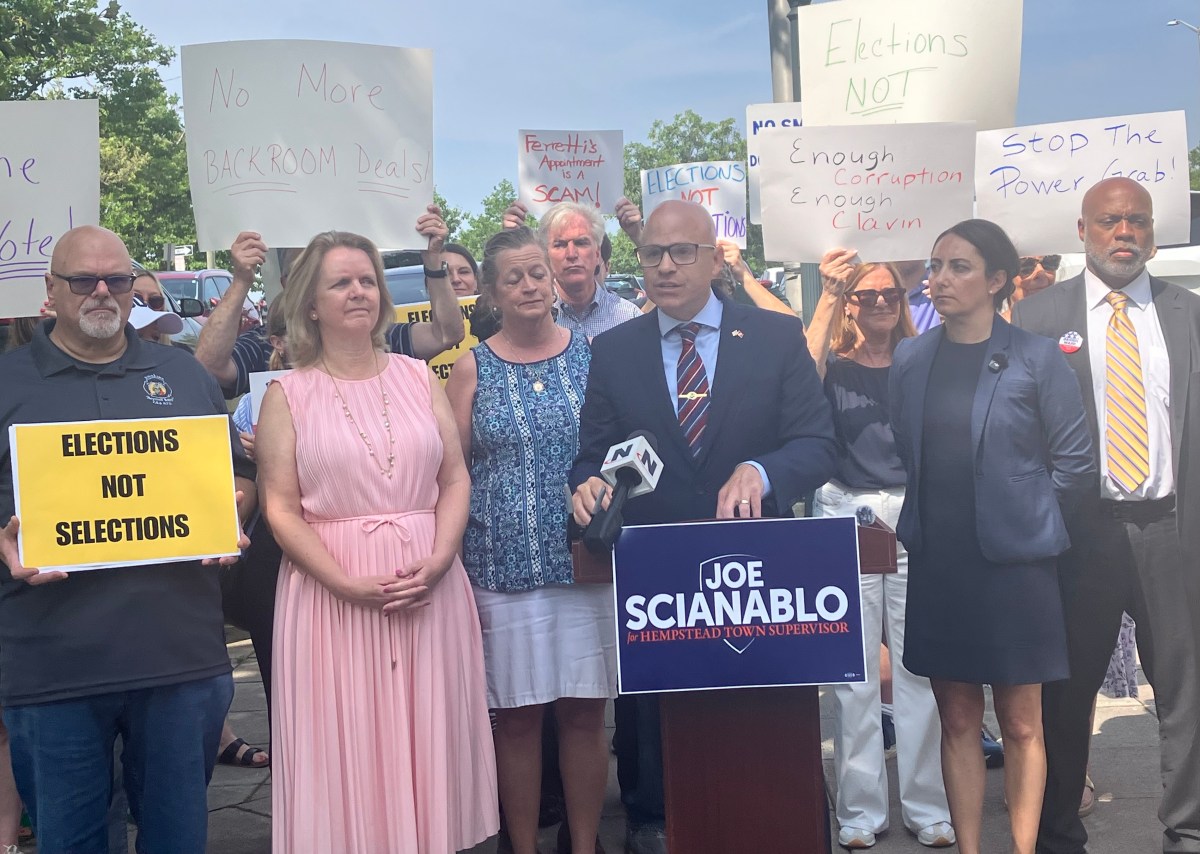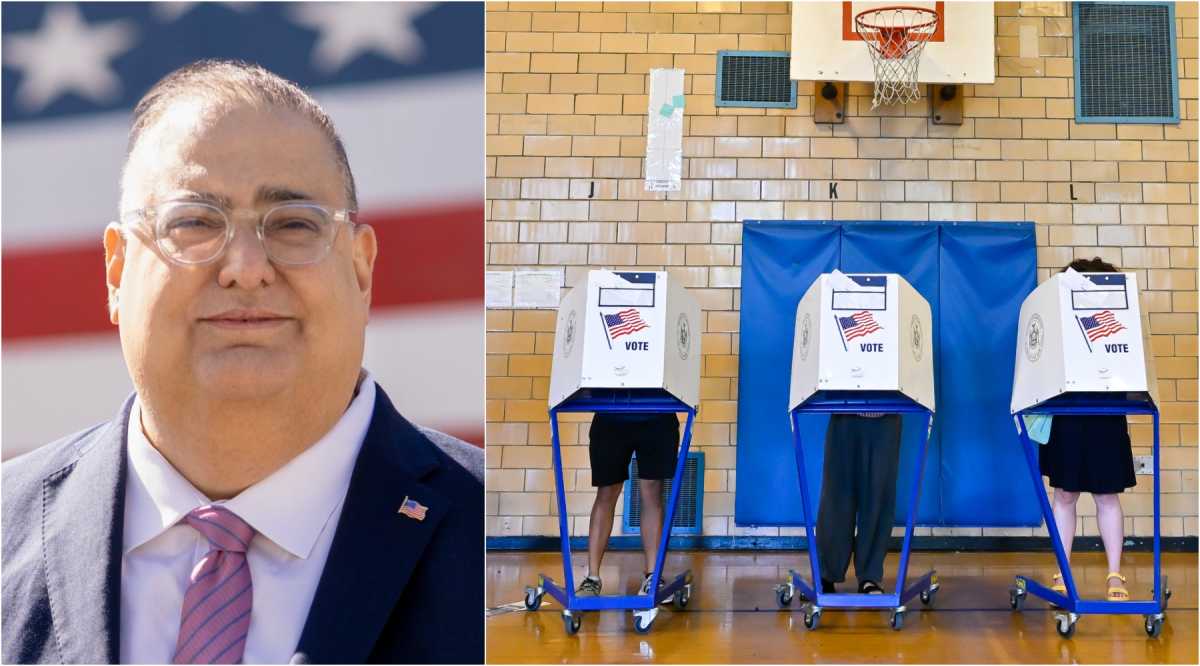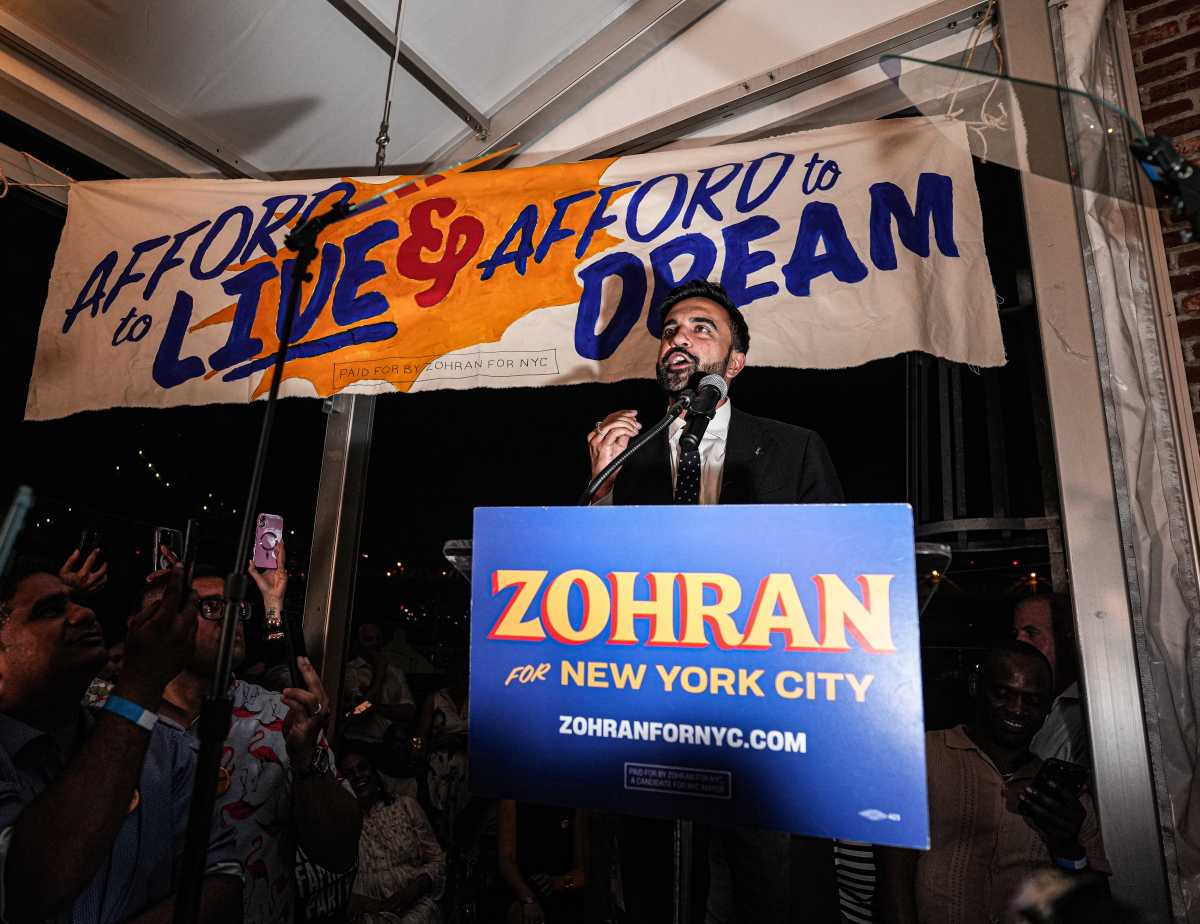Kings County Supreme Court Judge Edgar Walker ruled today in favor of the City against the city’s Board of Elections, allowing city funded interpreters at polling locations.
The move capped a morning press conference at Brooklyn Borough Hall, in which the city and a number of elected officials and good government groups decried the BOE for their decision late last week to bar Russian, Haitian Creole, Yiddish, Polish and other interpreters from the polling places just four days before tomorrow’s special election for public advocate.
Currently, the Board of Elections provides interpretation services in certain poll sites in Spanish, Mandarin, Cantonese, Korean and Bangla, as required by the Voting Rights Act.
The city has been working with the DOE for months to have these interpreters placed inside of buildings where poll sites are located.
The Administration hired interpreters through Langalo Translations, a City-certified M/WBE language services vendor, and conducted comprehensive trainings for poll site interpreters.
Mirroring last November’s election, the City utilized a nonpartisan approach in identifying poll sites where these services will be provided, which is intended solely to serve those sites with the highest need for interpretation services. Specifically, the City first analyzed detailed census data. This data helped identify the top 15 languages spoken by limited English proficient New Yorkers: Russian, Haitian Creole, Italian, Polish, Arabic, Yiddish, Greek, Albanian, Tagalog, Urdu and French, in addition to the languages covered by the Voting Rights Act.
The City further analyzed this census data to identify the percentage of people within these populations who are 18 years or older and eligible to vote to determine where the highest need for interpretation services at poll sites exist. Given the timing of the Special Election and the limited number of interpreters, the City selected the top 48 poll sites with the highest need for this upcoming election.
“First, the BOE told us more language access at poll sites was not possible because they didn’t have enough money. That’s why I proposed and secured the funding for a pilot program in partnership with Mayor de Blasio that we later expanded to serve New Yorkers in 10 languages at over 100 poll sites across the city,” said City Council Member Mark Treyger (D-Coney Island, Bensonhurst, Gravesend), who has been a leading lawmakers at having a number of interpreters at polling sites.
“The Voting Rights Act language access provisions are a floor, not a ceiling, and they certainly are not a ‘get-out-of-jail-free card,’ as the BOE has said. New Yorkers are sick and tired of the inhumane practice of forcing interpreters to sit outside, exposed to the elements, conflating this critical service with electioneering. In a city with low voter turnout and a history of disenfranchising voters whose primary language is not English, we should be breaking down barriers, increasing language access and finding ways to empower New Yorkers to get to polling sites with every resource they need to exercise this most American of rights,” he added.
City Council Member Justin Brannan (D-Bay Ridge, Bensonhurst, Bath Beach, Dyker Heights), another leading lawmaker in pushing for interpreters at polling sites noted that he represents one of the largest Arabic-speaking communities in the country.
“This is exactly why I introduced a bill that calls for the expansion interpreters at poll sites citywide. Language gaps are often barriers to civic engagement for individuals who effectively have their voices shut out of the political process. Our democracy works best when we make it easy for everyone to vote so all of our voices are heard. I really have no idea why the Board of Elections would stand in our way now the day before an important election,” said Brannan.
City Council Member Dr. Mathieu Eugene (D-Flatbush, East Flatbush) said the polls should reflect languages of the vibrant immigrant community.
“It is not right when measures are enacted to deter their participation in the democratic process by limiting interpreter access to poll sites. My colleagues and I have advocated for many years to allow more language interpreters at poll sites, and we will continue to work together to protect the voting rights of the immigrant community,” said Eugene.
The polls are open tomorrow for the public advocate election from 6 a.m. to 9 p.m. To find out where your local poll is click here.










